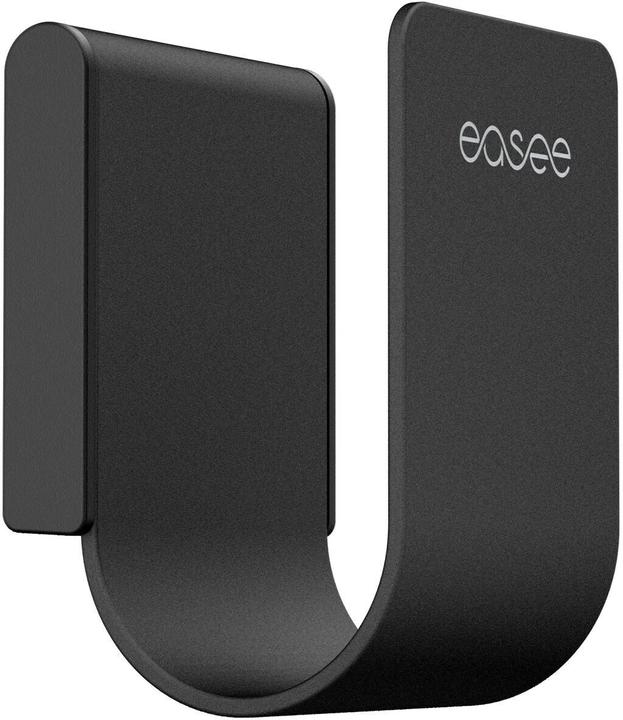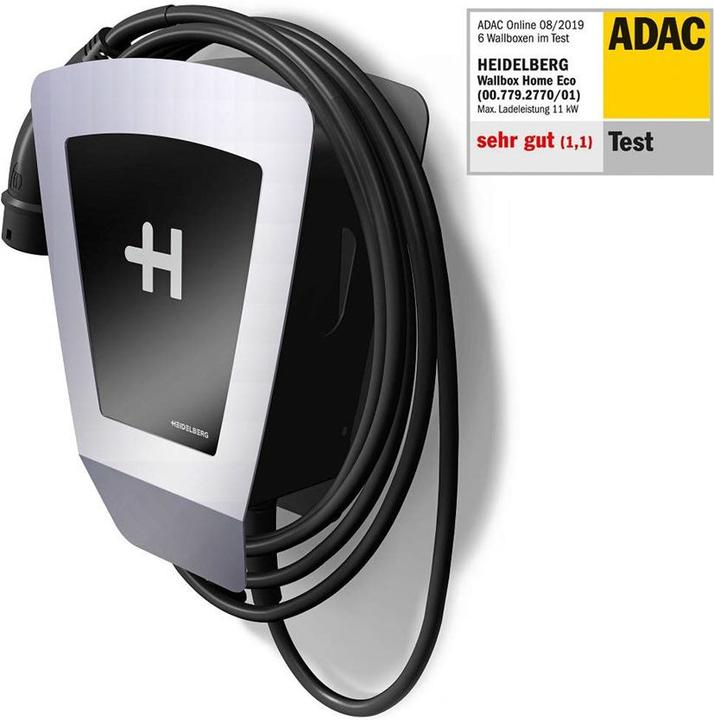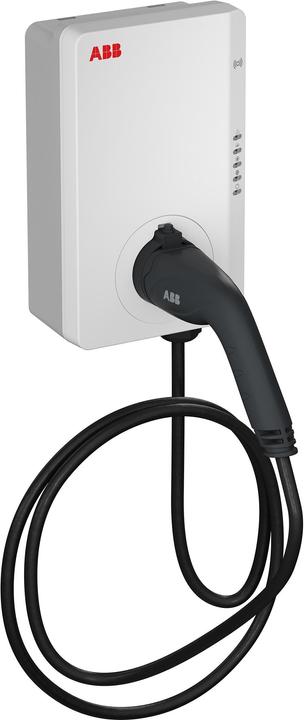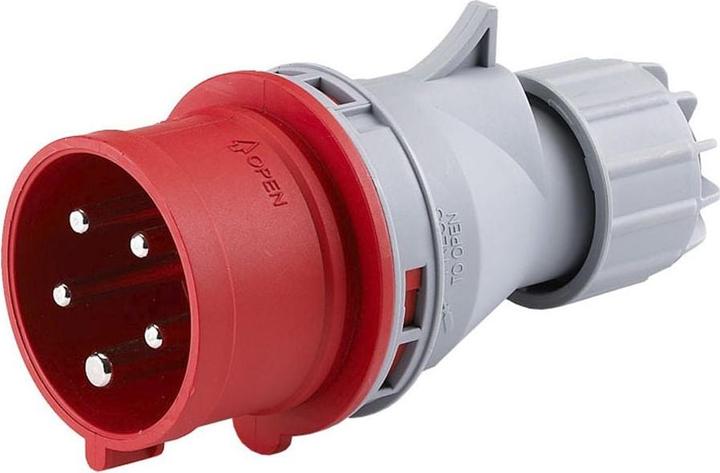

E-mobility: how to find the home charger that’s right for you
If you’ve decided to get an electric car, charging it at home is ideal. Installing a home EV charger pays off. But which one is right for you?
Electric vehicles are sometimes also referred to as plug-in electric cars. Because of this, you may be tempted to think that you can charge your electric car simply by plugging it into a regular socket in the garage. But it’s not quite that simple. Charging your car like this would take very long, and most sockets aren’t designed to output maximum power for hours on end.
So, there’s no way around it: you’ll have to navigate the jungle of electric car chargers. Here are some tips to help you find your way.
What is a charging point?
A charging point, wallbox charger or simply charger is – as the name implies – a charger for your electric vehicle. It comes in the form of a box that you mount on the wall of your garage or parking spot. It charges your car so you can rest easy while sleeping or enjoying lunch with your family.
Why do I need a charger for my car?
A home charger allows you to your car at home. The same electricity rates apply as for the rest of your household. This is substantially cheaper in the long run. Compared to public chargers, you save up to two thirds on each charge.
- According to SwissCharge, 1 kWh of electricity at a public charger costs 0.365 francs.
- On the EWZ grid, 1 kWh of electricity during high-rate hours costs 0.3797 francs.
- On the EWZ grid, 1 kWh of electricity during low-rate hours costs 0.1385 francs.
It’s also much more convenient to have your car charge while you take care of your daily tasks or watch a movie in the evening. At public chargers, you have at least half an hour of time to kill – or more – before you can drive off with a full battery.
How do I get a home charger?
There are three steps to installing a home charger:
- Choose the charger you want. That’s what this guide is supposed to help you with.
- Buy the charger. You have to take care of this step yourself, unless the installation company offers you an all-in-one package deal. In any case, you should make sure the charger is itemised separately on the quote so you can compare prices.
- Get the charger installed. This must be done by an electrician does this – this is mandated by law.
When does it make sense to get a home charger?
As touched on above, a proper charger allows you to charge your car both more quickly and more safely than with a household socket, which is typically not designed to output maximum power for hours on end. Some other advantages, depending on the charger model, include: load management, access and usage rights for multiple people, smart home integration. But more on that below.
Which EV charger should I get?
There are three components that together determine the speed at which your car charges:
- the EV charger itself (i.e. the box you mount to the wall)
- the charging cable
- the car
What often creates a bottleneck is the charger, depending on its performance.
It’s important to check the power output of the charger. You can filter for the following in our shop:
- 7.4 kW
- 11 kW
- 22 kW
The more kilowatts the charger offers, the faster your car will charge – provided it can handle that amount of power. A hybrid with single-phase charging can often only take a maximum of 7.4 kW. In Switzerland and Germany, the law actually limits single-phase charging is to just 3.5 kW to avoid an unbalanced load. (Thanks to community member @Novanion for the info!)
In this case, a 22 kW charger is of no advantage. Unless you’re planning for the future. But as of today, most purely electric cars charge at 11 kW. Some vehicles do also offer 22 kW charging power – click here for an overview.
What are the requirements for getting a home charger?
Here’s where things get really complicated, so take the information that follows with a grain of salt. Here’s what to keep in mind when looking to install a home charger:
- Power grid: can your home’s electrical grid provide enough power to charge your car?
- Network: do you have either Wi-Fi reception or a network cable plug at the location where you wish to mount the charger?
The electrician will be able to answer the first question for you during a first consultation.
Which plugs do I need?
You may be able to charge your car with a standard 220V socket – without an actual charger. However, every car manufacturer advises against it. Using a 220 V socket should be reserved for absolute emergencies only, for example, if you need to charge your car just enough to make it to the nearest EV charging station.
For efficient and effective operation of a charging solution in your own home, you need a three-phase CEE socket – here again, there are some differences to keep in mind. This allows for much higher charging speeds than with a normal household socket.

An electrician will have to install this socket for you if you don’t already have one in your house. You plug the EV charger into this socket and connect a charging cable to your EV charger, which you then plug into your car. A charging cable is usually included with the EV charger, but make sure to double-check. For instance, chargers by the brand Easee do not include a charging cable, so you’ll have to order one separately. Alternatively, check the trunk and frunk of your electric car – most include a charging cable.
Do I need to ask for permission to install an EV charger?
If you’re the owner of a single-family home, you don’t need to worry about getting permission. You decide if you want to install an EV charger, which one you want and where to install it. In terms of technological requirements, you need a high-voltage connection wherever you want to install the EV charger. If there’s already a CEE socket in that spot, you have even less to worry about.
Things are more likely to get complicated if you own a condo («Stockwerkeigentum») or rent a place. All it takes is one «no» from your building administration – or the other condo owners. No legal framework exists yet for the installation of EV chargers.
How much does installing an EV charger cost?
This is highly dependent on where you live. In older houses, the electrical wiring is sometimes not powerful enough. Or the distribution board may be far away, which could make it necessary to run a cable through the wall. Anything like this will drive up the cost of installation. It’s a good idea to first consult with a trusted electrician. There are online tools that will give you an initial cost estimate after entering a few details – for example this one from AMAG. Expect to spend at least 2,000 francs, plus the cost of the EV charger itself. Some providers offer a flat rate for the installation. This offers you cost certainty in case of unexpected problems, for example if the electrical lines at your place turn out not to be the right ones.
What charging power do home chargers offer?
You’ll find five options if you filter by charging power on Galaxus. Some are superfluous. There are really just three options worth considering:
Single-phase charging with 7.4 kW
If you have a slightly older electric car model or a specific hybrid model, your car may only support single-phase charging. The maximum supported charging power is then 7.4 kW. If this is the case, you can save some money by going for a less powerful EV charger. Alternatively, you can go for an 11-kW or 22 kW charger with adjustable charging power, like this one:
Three-phase charging with 11 kW
Newer and more modern electric cars allow support higher charging power, meaning your car will soak up the juice more quickly. 11 kW charging power is typically enough to recharge your car overnight. If this is something you want, you’ll have to purchase an EV charger that also supports 11 kW. In addition, this requires a three-phase power connection, i.e. a high-voltage power line.
Three-phase charging with 22 kW
In the case of electric cars with large batteries, it’s worth investing in a more powerful, 22 kW charger. It offers the fastest charging speed possible at home. However, the installation of a 22 kW model usually costs more because you need to get additional approval from the grid operator – as opposed to just notifying the grid operator, as in the case of a less powerful charger. And beware: fast charging is not exactly easy on the battery. If you always charge at maximum power and maximum speed, the service life of your battery will decrease.
The price difference between 11-kW and 22 kW models is often not particularly large. Many models can also be temporarily limited to 11 kW during installation, allowing you to put off getting the expensive permit until you decide to remove the power restriction.
Important note: most electric cars currently offer a maximum charging power of 11 kW. Some exceptions exist, such as the Renault Zoe or some models of the Smart EQ. You can find an overview here.
How long does charging your car take with a home charger?
Calculators out, time to do the math! Don’t worry, it’s not all that complicated. To find out how long your electric car takes to charge, you need two numbers: first, the charging power of your EV charger (see above), and second, the capacity of your car’s battery.
Here’s an example: a Skoda Enyaq iV 80 has a battery capacity of 77 kWh. Let’s say you’ve driven it completely empty and now want to charge it to 100 per cent. You have an EV charger that charges with 11 kW. In this case, charging your car will take about seven hours (77 kWh battery capacity divided by 11 kW charging power).
Now, before any e-mobility experts have a go at me in the comments, a disclaimer: this calculation is just a simple estimate. In reality, each car has an individual charging curve depending on variables like age and quality of the battery, outside temperature, intelligence of the car software, available power at the charger and so on. As a rule, charging tends to be somewhat faster at the beginning and decrease as the battery gets fuller.
Can I monitor or control the charging process at my home charger?
Do you want to determine when your car should start charging? That’s a good idea. You can time the charging in order to benefit from lower energy rates, for example. In order to do this, you’ll need a charger that offers «smart charging» or a car that allows you to control how it charges in its app. If you want to control the charging process through the charger itself, it must be connected to the Internet via cable or Wi-Fi.
Some EV chargers come with an app that, for example, allows you to set charging so that your car is 80 per cent full right in time for your 8 a.m. drive to the office. You can also set it to charge only during low-rate hours.
Are there any subsidies for the purchase and installation of an EV charger?
In Germany, the state provides a flat-rate subsidy of 900 euros for every EV charger installed. The programme became – and remains – so successful that funding had to be increased.
In Switzerland, the situation differs from canton to canton. You can find a good overview of funding in the cantons here. The cantons of Bern, Schaffhausen, Ticino and Valais, for example, promote the purchase and installation of EV chargers. You’ll also find that some municipalities and cities have their own measures in place, so it’s worth enquiring in your place of residence.
Which EV chargers are the best?
EV chargers are constantly being tested and compared. However, it’s important to keep in mind that the market is developing rapidly, and individual needs can differ greatly.
In Germany, ADAC – Europe’s largest motoring association – tested six 11 kW chargers in June 2021. The test winner was the rather expensive Kostad TX-1000. In Switzerland, this very charger is available under the manufacturer’s brand ABB. You’ll find it under the designation Terra AC W22-G5-R-C-0.
The other «good» EV chargers are currently (as of September 2021) not available in Switzerland. Only the charger offered directly by Volkswagen, the ID.Charger, is also available here.
The independent consumer organisation Stiftung Warentest recently tested 2019 EV chargers. The winner of that test among the 22 kW chargers was the Menneks Amtron Xtra 22, while the ABL eMH1 won in the 11 kW category.
Can I charge my car without a home charger?
Installing a home charger isn’t cheap. Are you moving soon, do you first want to see if electric cars are right for you, or do you simply not like being tied down? In these cases, you can do without a fixed EV charger and opt for a mobile charger instead. A mobile EV charger is essentially a set of cables with a box that transforms the electrical current. It allows you to charge your car at any socket – at a CEE socket, charging speeds will be quite fast; at a normal socket, correspondingly slower.
Have any other questions?
These were nine questions and answers about EV chargers. Do you have any other questions you’d like answered? Post them in the comments! We’ll update this article with the answers. You can find Galaxus’ range of EV chargers here.
This article was last updated on 20 September 2021 at 9:20 a.m. with reader comments in mind.
Title picture: Ed Harvey / Unsplash
Journalist since 1997. Stopovers in Franconia (or the Franken region), Lake Constance, Obwalden, Nidwalden and Zurich. Father since 2014. Expert in editorial organisation and motivation. Focus on sustainability, home office tools, beautiful things for the home, creative toys and sports equipment.
Practical solutions for everyday problems with technology, household hacks and much more.
Show allThese articles might also interest you

Background information
From combustion engine to electric car - an experience report with ups and downs
by Martin Jungfer

Background information
E-mobility: questions and answers for newbies and curious minds
by Martin Jungfer
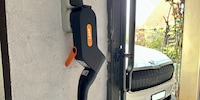
Product test
Handy when visiting friends: the Mobility Dock charges electric cars in tricky places
by Martin Jungfer


